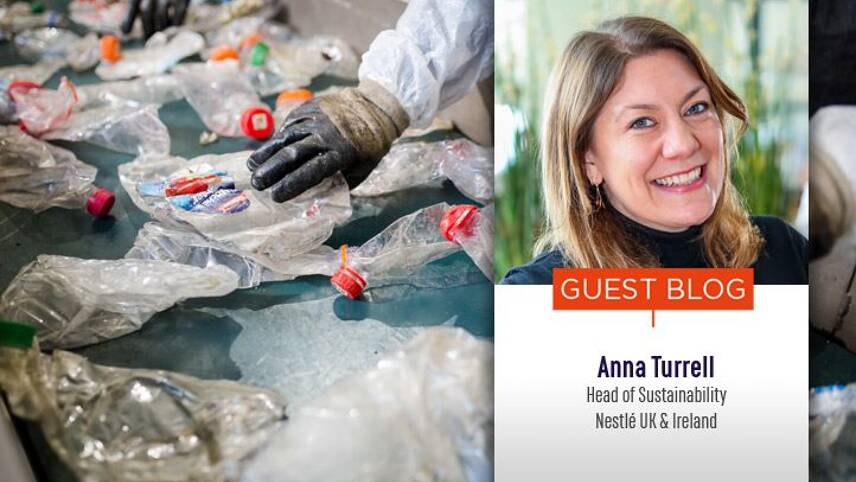Register for free and continue reading
Join our growing army of changemakers and get unlimited access to our premium content

The impacts of packaging waste are visible wherever you go in the world. It is impossible to miss. This is a result of a massive increase in the global production of plastics – from two million tonnes annually in 1950, to more than 300 million tonnes today – shaped by the increasing demands of our modern lives.
Of the plastic packaging used for food and beverages, much of it currently ends up in the natural environment, particularly in rivers and oceans – causing enormous harm to our ecosystems.
Plastic packaging plays an important role in delivering food and drink to consumers in a safe and convenient way. However, as companies, we must address its end of life impacts if we are to create a circular economy. In order to do this, we have to work together.
The issue of packaging waste and littering is a societal challenge, and a concern shared by everyone. We, along with governments, NGOs, and importantly consumers, want to see recyclability rates go up significantly, while the negative impact of packaging waste on the environment falls away completely. Through close collaboration, inspired innovation and carefully crafted initiatives, we can achieve the transformational change to the system we need – but this has to happen now. In order to achieve the changes required it needs a joined-up approach with both voluntary and regulatory action having an important role to play. Indeed, collaboration and collective action is absolutely vital for transforming how packaging waste is managed. Recognising this, Nestlé opened the Institute of Packaging Sciences in 2019 to enable us to accelerate our efforts, and the efforts of others, in bringing functional, safe and environmentally friendly packaging solutions to the market and to address the global challenge of plastic packaging waste.
As a company, we’re clear that none of our packaging, including plastics, should end up in landfill or as litter, including in seas, oceans and waterways. In order to make this a reality, we’ve set ourselves the commitment of ensuring that 100% of our packaging is reusable or recyclable by 2025. As the world’s largest food and beverage manufacturer present in 189 countries, we have a lot of work to do to make this a reality, but we’re determined to get there.
To achieve our commitment and transform our packaging, we are eliminating non-recyclable plastics and significantly reducing our use of single-use plastics. We are also introducing reusable packaging, new delivery systems and innovative business models everywhere we operate and sell our products. This includes rolling out the home delivery service Loop. Part of the challenge we face as a society today is that waste management looks very different in almost every country, making it very difficult to standardise systems and processes.
With all of this work, we remain really mindful of not creating unintended consequences through the changes we are making to our packaging. A recent report from UK-based environmental NGO Green Alliance, highlighted the potential implications of moving to alternative materials without necessarily considering the broader environmental impacts. This is something that all stakeholders need to keep in mind as we continue to move forward on this journey.
By working together with industry, government, civil society and consumers, we will create a waste-free future
Anna Turrell also appeared on the latest episode of edie’s Sustainable Business Covered podcast. You can listen to the 25-minute interview as a standalone conversation here.
Single-use plastics: The 2020 roadmap for sustainable business
This insight report, inspired by edie’s Mission Possible Plastics Hub and sponsored by Nestle, provides a much-needed progress update on the UK’s transition away from single-use plastics; and acts as a definitive guide for businesses looking to eliminate single-use plastics waste through reduction, redesign and phase-out of the material – in a way that doesn’t lead to any unintended consequences.
The report includes a mix of high-level thought-leadership contributions and best-practice case studies, providing readers with a unique insight into how they can become the changemakers on the road to zero single-use plastics.
Anna Turrell is head of sustainability for Nestlé UK & Ireland



Please login or Register to leave a comment.